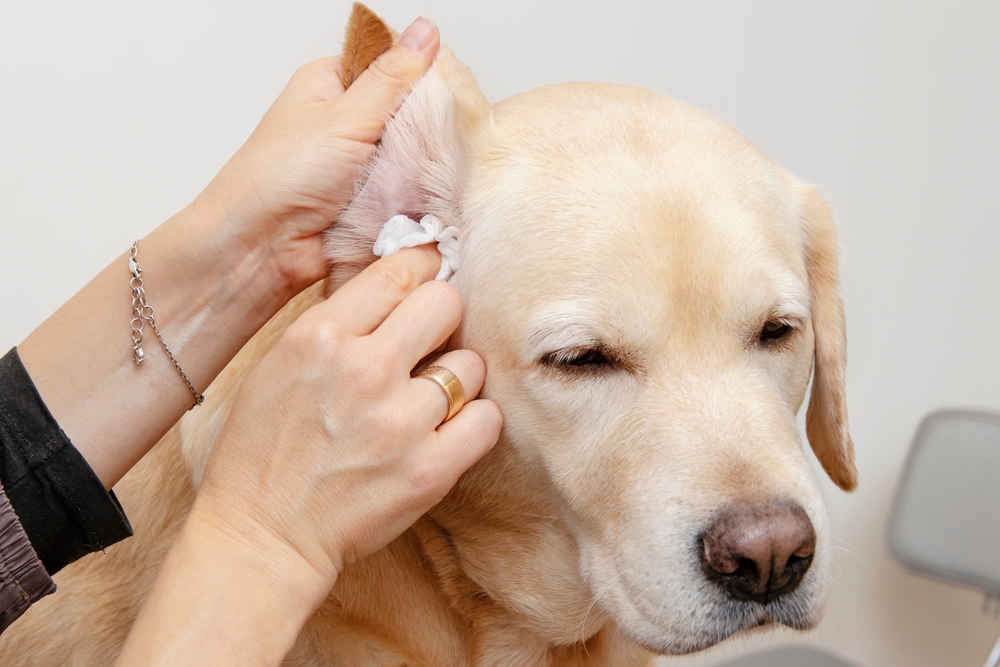
Pet allergies are more common than many pet owners realize and can affect dogs, cats, and even small mammals. While allergies can be frustrating and uncomfortable for your pet, understanding the underlying causes, recognizing the symptoms, and seeking appropriate treatment can help your furry companion lead a more comfortable and healthy life.
What Causes Pet Allergies?
Pets can develop allergies to a variety of substances in their environment or diet. The most common types of pet allergies include:
• Environmental Allergies (Atopy): These are reactions to airborne substances such as pollen, mold spores, dust mites, and grasses. Pets may be exposed to these allergens indoors or outdoors.
• Flea Allergy Dermatitis: Some pets are highly sensitive to flea saliva. Even a single flea bite can trigger an allergic reaction, causing significant itching and discomfort.
• Food Allergies: Pets can develop allergies to ingredients in their food, including certain proteins (like beef, chicken, or fish), grains, or dairy. Food allergies often result in skin problems but can also cause digestive issues.
• Contact Allergies: Less common, these allergies occur when a pet’s skin reacts to substances it touches, such as shampoos, cleaning products, or certain fabrics.
Recognizing Symptoms of Pet Allergies
Pet allergies can manifest in various ways, and symptoms may vary depending on the type and severity of the allergy. The most common symptoms include:
• Itchy, red, or inflamed skin
• Excessive scratching, licking, or chewing at the skin, paws, or ears
• Hair loss or bald patches
• Recurring ear infections
• Watery eyes or runny nose
• Sneezing
• Vomiting or diarrhea in the case of food allergies
If your pet is displaying any of these signs, it’s important to contact your veterinarian to determine the underlying cause and appropriate treatment.
Treatment Options
If you suspect your pet has allergies, early intervention is key to preventing more serious complications like skin infections or chronic ear problems. Your veterinarian can perform diagnostic tests, recommend treatment options, and help you develop a management plan tailored to your pet’s unique needs. Here are some common approaches to managing pet allergies:
• Flea Control: For pets with flea allergy dermatitis, year-round flea prevention is crucial. Your veterinarian can recommend effective flea control products tailored to your pet’s needs.
• Dietary Changes: If a food allergy is suspected, your veterinarian may recommend an elimination diet to identify the offending ingredient. Once the allergen is found, switching to a hypoallergenic or prescription diet can provide relief.
• Medications: Depending on the type and severity of the allergy, your vet may prescribe antihistamines, corticosteroids, or other medications to control itching and inflammation. For environmental allergies, immunotherapy (allergy shots or drops) may also be an option.
• Environmental Management: Regular cleaning, air filtration, and minimizing your pet’s exposure to known allergens can help control environmental allergies.
Is Your Pet Showing Signs of Allergies?
Pet allergies can be challenging, but with proper diagnosis and ongoing management, your pet can still enjoy a happy, healthy life. Being proactive about your pet’s symptoms and working closely with your veterinarian will help you find the best solutions for their individual needs.
If you’ve noticed signs of allergies in your pet, contact Ramsgate Veterinary Clinic for expert guidance and effective treatment to keep your pet comfortable year-round. Visit our facility in Waco, Texas, or call (254) 848-4083 today.







